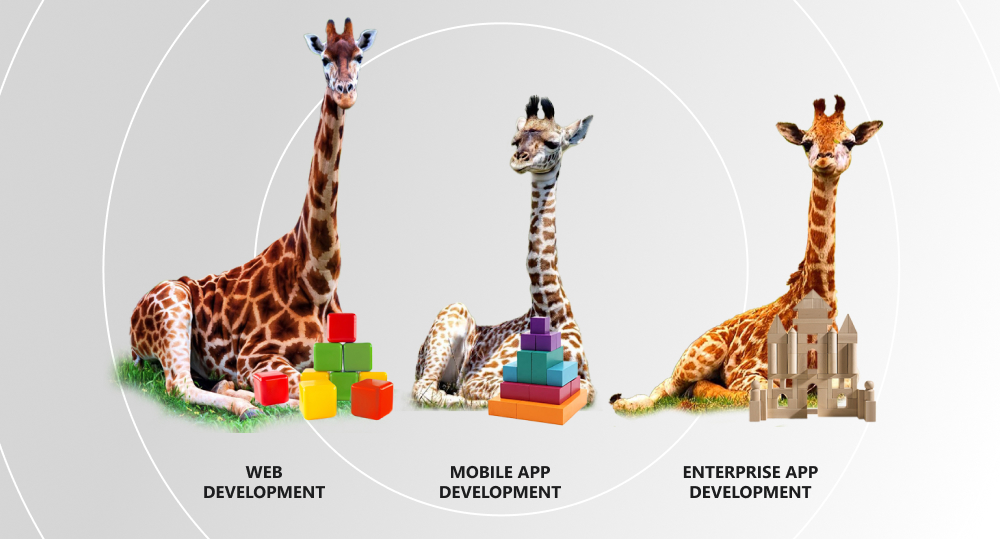Is PHP dead, and is it better not to invest in product development in this language? If you come across sources that claim so, they are leading you down the wrong path. PHP is pretty much alive and kicking. Whichever web platform you open — Facebook, Tumblr, or WordPress — they all have picked this programming language for their end-to-end infrastructure. So if you don't have a qualified in-house team and are mulling over the idea to outsource PHP development, it's a perfectly sound plan.
In today's guide, we'll walk you through the reasons why you should choose this language for software development and outsource a PHP developer, or better yet, an entire team of professionals. Ready?
written by:
Maria Zhirko
Software Developer
Contents
Outsourcing PHP Development: Is It a Great Pick?
PHP has been around since 1994, but it has gained popularity mostly in recent years. According to the latest figures, 71% of today's websites are at least partially powered by this technology. Let's examine the reasons why they still use it. Maybe all those people who keep asking if PHP is dead just want it to be dead?
Technical Overview
If you’ve never dealt with PHP before or don’t know much about it, let’s start with a brief introduction.
PHP is a popular server-side scripting language that is widely used for developing web apps. It is well-suited for creating dynamic pages and can be embedded directly into HTML code. It runs on a web server, which parses the PHP code, generates HTML output, and then sends it to the client’s web browser. PHP is free and open-source, and it runs on all major operating systems.
Let’s dive a bit into the technical details.
Execution side
Server side
Supported protocols
HTTP, NNTP, POP3, LDAP, IMAP, SNMP
Supported platforms
Windows, Linux, Unix, macOS
Supported databases
MySQL, SQLite, Oracle, PostgreSQL, IBM Informix, Sybase
Git support
Yes
Existing versions
1.0, 2.0, 3.x, 4.x, 5.x, 6.x, 7x
Latest version
PHP 8.1
V. 8.2 is available for testing
Variable declaration type
Loosely typed language
Frameworks
Symfony, Laravel, Zend, Aura, CodeIgniter, Yii, CakePHP
Integrations
HTML, XML, JavaScript
Error reporting
Yes
OOP features
Yes
Code maintenance
Yes. Through frameworks like MVC (Model View Controller)
Third-party app support
Yes, for security purposes
Real-time access monitoring
Yes
What's So Special about PHP?
Now that you know the basics, it’s time to answer the major question. What empowers PHP to compete with the latest development technologies such as Ruby or Node.js?
Numerous Frameworks
One of the greatest things about PHP is its powerful frameworks. They offer developers a foundation for building complex applications with accelerated workflows and lightweight coding. They also help to speed up PHP project development by providing extensive libraries, features, and templates for creating custom and out-of-the-box solutions. You may have heard of some well-known examples:
- Laravel;
- CakePHP;
- CodeIgniter;
- Zend;
- Symfony.
Plenty of Ready-to-Use Tools
PHP is rich in tools and resources for integrating custom functionality into the software you develop. These include frameworks, dependency managers, editors, extensive documentation, and more. The best part about this is that all the resources are available online. Therefore, a developer can study the language and different ways to build products based on it without any hassle. If you dig around on the Internet, you will find tons of resources covering various topics related to PHP software development. And the icing on the cake is a myriad of extensions that help software engineers double and even triple the power of this language.
Platform & Server Independence
PHP is a universal scripting language that can be used on any platform. Whether you choose Windows, Linux, Unix, or macOS for your PHP development project, all scripts will run on them and in most web browsers without any problems. This makes it a sound choice for developing web applications, as any in-house or outsourced team can build your website on whatever platform you decide upon.
PHP is also compatible with all major web servers used today, such as Apache, IIS, and Nginx. This means you can host your site on any server without worrying about compatibility issues.
Crowds of Expert PHP Developers to Hire
Owing to its popularity, PHP boasts a large community of developers, among whom it is relatively easy to find experts for hiring and outsourcing. With such a vast selection, competition in the market is high and salaries are low, making the cost of development services affordable. Still, you should choose your outsourcing partner wisely.
Since PHP is incredibly powerful, it makes it relatively easy to write functional applications. Even developers with little experience can create a large-scale project. However, in this case, it may take longer to launch, and the result may not be of the same high quality as if skilled professionals were working on the product.
Hiring junior developers is suitable for those companies that want to save money and do not have strict deadlines. If speed and quality are a priority, you should employ experienced developers with solid PHP expertise.
Annual PHP Developer Salaries — Experience Level, US
Level
Minimum
Average
Maximum
Junior
$26K
$66K
$98K
Senior
$33K
$105K
$154K
Source: https://www.ziprecruiter.com/
Open-Source Language
Another perk of PHP is that it can be installed and used at zero cost. The language is open-source, which means that anyone can access its core functionality without payment or subscription. On top of that, all development tools and services, including frameworks, documentation, and editors are also open-source and can be used for free. This makes PHP a great technology for companies that want to reduce the cost of PHP development projects and save their budget.
Content Management System Support
Three of the most popular content management systems (CMS) are written in PHP: WordPress, Drupal, and Joomla. This means that the language is used in the core of these services. With such a powerful feature at your fingertips, it's easy to extend the functionality of PHP and make the process of developing software solutions way simpler and more efficient.
So if you're planning to build high-end web solutions with CMS functionality, PHP can be your doorway to success.
Fast & Easy to Learn
We can't ignore the fact that working on PHP projects is a fascinating activity, as it is simple and fast. How's that?
Product development doesn't take years to complete, since PHP has the easiest learning curve compared to other programming languages. It is extremely flexible in its approach, and its constructs are easy to understand, even for newcomers to this field.
But beware — the relative ease of learning PHP makes it a double-edged sword. So if you're going to work on a large-scale software project, you’d better outsource PHP development to a dedicated team of experts, rather than rely on freelancers or junior developers.
PHP-Based Websites You've Definitely Heard Of
Though PHP is often not as flashy as some newer technologies out there, it remains a popular programming language, powering thousands of web pages and applications around the world.
Take a look at some of the most notable PHP-built sites that attract millions of users. From social media giants to eCommerce powerhouses, these services show just how versatile and capable this technology can be.
Field
Examples
Social media
Facebook, Flickr, Tumblr
Web portals
Wikipedia
CMS
WordPress, Drupal
Travel & hospitality services
Trivago, Delivery Hero
Real-estate platforms
Compass, Century21
Music & video streaming portals
Spotify
Messaging platforms
Slack, MailChimp
eCommerce
BigCommerce, Magento, Stock
Multivendor marketplaces
Upwork, Etsy
Healthcare
Pfizer, Peloton
Fintech
Paytm, Ratio, CrowdCube
E-learning
SkillShare, Moodle
Now, does that sound convincing enough to go for PHP developers outsourcing?
What PHP Developers Can Build
Dedicated PHP developers can create remarkable things: responsive websites, scalable web applications, desktop and mobile solutions, and more. Thanks to various frameworks and libraries, they can build even more complex enterprise-level software. Let's explore what PHP development services they have in store.
Web Development
The main purpose of PHP is web development. Here are the most common use cases for it:
- Server-side back-end code;
- Real-time web apps;
- Plugins and themes for WordPress;
- REST and web services;
- Website cybersecurity;
- Cloud integration;
- Database integration.
This language is actively used by PHP development companies to create interactive web pages, apps, and eCommerce platforms. How does it help with this?
Every front-end app needs to get some data from the server back end. Developers can use various technologies for this purpose: Java, Python, C/C++. But the most popular language for this purpose is PHP, since it was created specifically for this task.
Since PHP is used for the back end of websites, it can also be easily connected to a database. This feature has been available since the early days of the language, and it currently supports the following database systems: MySQL, Oracle, SQLite, Microsoft SQL Server, Berkeley DB, and even NoSQL databases such as MongoDB.
Database support makes PHP a handy foundation for developing websites, CMS, online stores, game apps, social networks, and other scalable software solutions that store user data.
Mobile App Development
While many people underestimate PHP, it has enough power to build back-end functionality for progressive mobile applications. This part of the software is responsible for collecting data from mobile devices, saving user settings, analyzing user behavior patterns, etc.
IT specialists use frameworks to build the server side of the app. Experienced PHP developers suggest that two of the most powerful and suitable options for mobile app creation are Laravel and Symfony. Combined with other PHP tools, they are perfect for delivering well-performing mobile solutions.
Enterprise Software Development
PHP is a robust language that can scale to meet the needs of large organizations. Using it, any PHP development company can create high-quality enterprise-level software that can handle the most demanding workloads. These include customer relationship management (CRM), content management (CMS), enterprise resources planning (ERP) systems, and other services for enterprise asset management.
When working on such products, the development team can take one of two paths: to adopt a ready-made PHP-based solution and customize it to the company's needs, or to create a new and unique platform from scratch. In both cases, the key to success is picking the relevant framework.
PHP Development Outsourcing? Sounds like a Plan!
While outsourcing development may not be a global trend, it's definitely the future of how businesses look for IT talent. That's why, when starting your PHP project, don't hesitate to turn to outsourcing companies. It can be a smart business decision that will help you save time, money, and focus on your core responsibilities.
Here are a few key benefits you'll get from collaborating with a PHP development outsourcing company:
- Cost-effective alternative to an in-house team;
- Access to the latest technology and global talent pool;
- Faster time to market;
- Round-the-clock support;
- Transparent development process;
- Streamlined business processes.
What about Hourly Rates?
The average hourly rate for an offshore developer with PHP expertise is $32–45 per hour. However, rates can vary depending on numerous factors, including experience, location, and project requirements. Let's look at this issue in terms of the location of a PHP outsourcing company.
Ready to Outsource PHP Web Development Services?
You can find a lot of criticism of PHP on the Internet. Note that even the most experienced PHP developers like to blame the language for its uselessness. The biggest problem with these rants is that the people involved are stuck in the PHP’s past, when it really had a lot of weird and unnecessary features or things that just didn’t work. For example, “register_globals” and “magic_quotes”. Let’s not even go into details of what these are. It’s better not to know at all.
The good news is this: PHP is way different from the language it was a decade ago. It has come a long way in recent years and is now a viable option for outsourcing development projects. With a thriving developer community and a vast ecosystem of libraries and tools, PHP is well-positioned to continue its upward trend in the coming years. So if you're looking to reduce overhead, hiring a skilled PHP outsourcing partner for your next big project would be a smart choice.
No time to find the perfect team? You don't need to, as you've already met Qulix. We have a top-notch team of developers with expertise in multiple PHP frameworks. They can provide high-quality work at a fraction of the cost of hiring in-house developers. Contact us today to learn more about our PHP outsourcing services.

Contacts
Feel free to get in touch with us! Use this contact form for an ASAP response.
Call us at +44 151 528 8015
E-mail us at request@qulix.com











